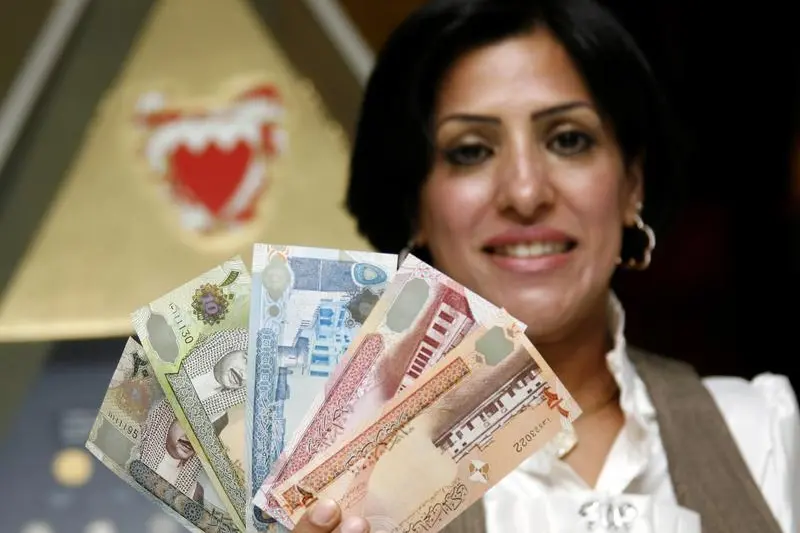PHOTO
Net profits for Bahrain-listed companies slumped by 30.8 per cent year-on-year to $1.7 billion in fiscal year 2023 (FY2023), hit hard by a downturn in the materials sector.
According to analysis by Kuwait-based Kamco Invest, the decline was primarily driven by Alba, the sole constituent in the materials sector.
The smelter’s net earnings plunged 71.6pc year-on-year in FY2023, reflecting a combination of factors.
Lower global aluminium prices, down 5.8pc in Q4-2023 and 16.8pc for the full year, squeezed margins.
Additionally, aluminium premiums fell 34.1pc year-on-year in Q4-2023 and 35.3pc for the full year.
Alba’s woes were compounded by a 6pc year-on-year contraction in Saudi Arabia’s aluminium consumption, dragging down overall demand in the Middle East by 7pc.
This weakness was further reflected in quarterly results, with total net profits for Bahrain-listed companies in Q4 2023 declining 14.2pc year-on-year to $296.9 million.
In contrast to the broader market weakness, the banking sector posted a robust performance. Aggregate net profits for the banking sector rose 21.1pc year-on-year to $900m in FY2023. This growth was led by strong performances from Bank ABC and National Bank of Bahrain (NBB), which reported net profit increases of 52.7pc and 16.2pc respectively for the year.
Bank ABC attributed its profit surge to core business growth, a stable funding base, and tailwinds from rising interest rates.
The diversified financial sector, however, painted a different picture. Total FY2023 net profits for the sector witnessed a sharp decline of 65.3pc year-on-year to $39.1m. This weakness was largely attributable to Bahrain Commercial Facilities Company, which reported a significantly wider loss in FY2023 compared to the prior year.
The company explained the loss as a result of increased provisioning against potential loan defaults arising from the pandemic’s economic fallout.
The telecom sector offered a glimmer of stability. Total FY2023 net profits for the sector edged up 2.4pc year-on-year to $206.5m, with both Beyon and Zain Bahrain reporting profit increases. Beyon’s customer base grew by 2pc year-on-year, driven by an 11pc rise in mobile subscribers in Batelco Bahrain, a 5pc increase in Umniah Jordan, and a 3pc expansion in Sure Group. Zain Bahrain’s net profits also rose marginally by 1.7pc year-on-year.
Zooming out, profits for listed companies in the GCC dropped 13.7pc to $240.5bn in 2023, after a banner year in 2022, according to a market analysis.
The decline was driven by a slump in profits from key large-cap sectors, particularly energy.
Energy companies saw the steepest profit decline, with aggregate profits tumbling nearly a quarter to $127.1bn in 2023. This drop reflects a 12.6pc decline in the Bloomberg Commodity Index, tracking a broad fall in commodity prices throughout the year. Crude oil prices fell 10.3pc, while natural gas prices plummeted over 40pc. Additionally, petrochemical and crude oil companies experienced significant sales volume drops, impacting their top-line.
While the energy sector led the decline, some sectors bucked the trend. Banking, real estate, and F&B companies reported higher full-year profits. The banking sector, in particular, saw profitability reach pre-pandemic highs, with aggregate profits surging 16.8pc to $53.8bn in 2023. This growth was broad-based across the GCC, with Saudi-listed banks leading the pack with an 11.7pc increase to $18.7bn.
Saudi Arabia witnessed the biggest absolute decline in profits, falling 23.7pc to $48.2bn in 2023. The energy sector there also reported the largest quarterly profits, at $29.6bn, despite a 15.8pc year-on-year decline. The decline came as average crude oil prices dropped nearly 20pc quarter-on-quarter in Q4 to close the year at $77.7 per barrel (Brent crude spot prices).
Despite the profit decline, the GCC region maintained positive economic growth with healthy manufacturing activity. Purchasing Managers’ Index (PMI) figures for Saudi Arabia and the UAE remained healthy, averaging above 56.
The outlook for GCC corporate profits remains uncertain. While the energy sector’s performance is heavily tied to global commodity prices, the banking sector’s strength and rising interest rates offer a potential tailwind for profits in the coming year.
Copyright 2022 Al Hilal Publishing and Marketing Group Provided by SyndiGate Media Inc. (Syndigate.info).





















